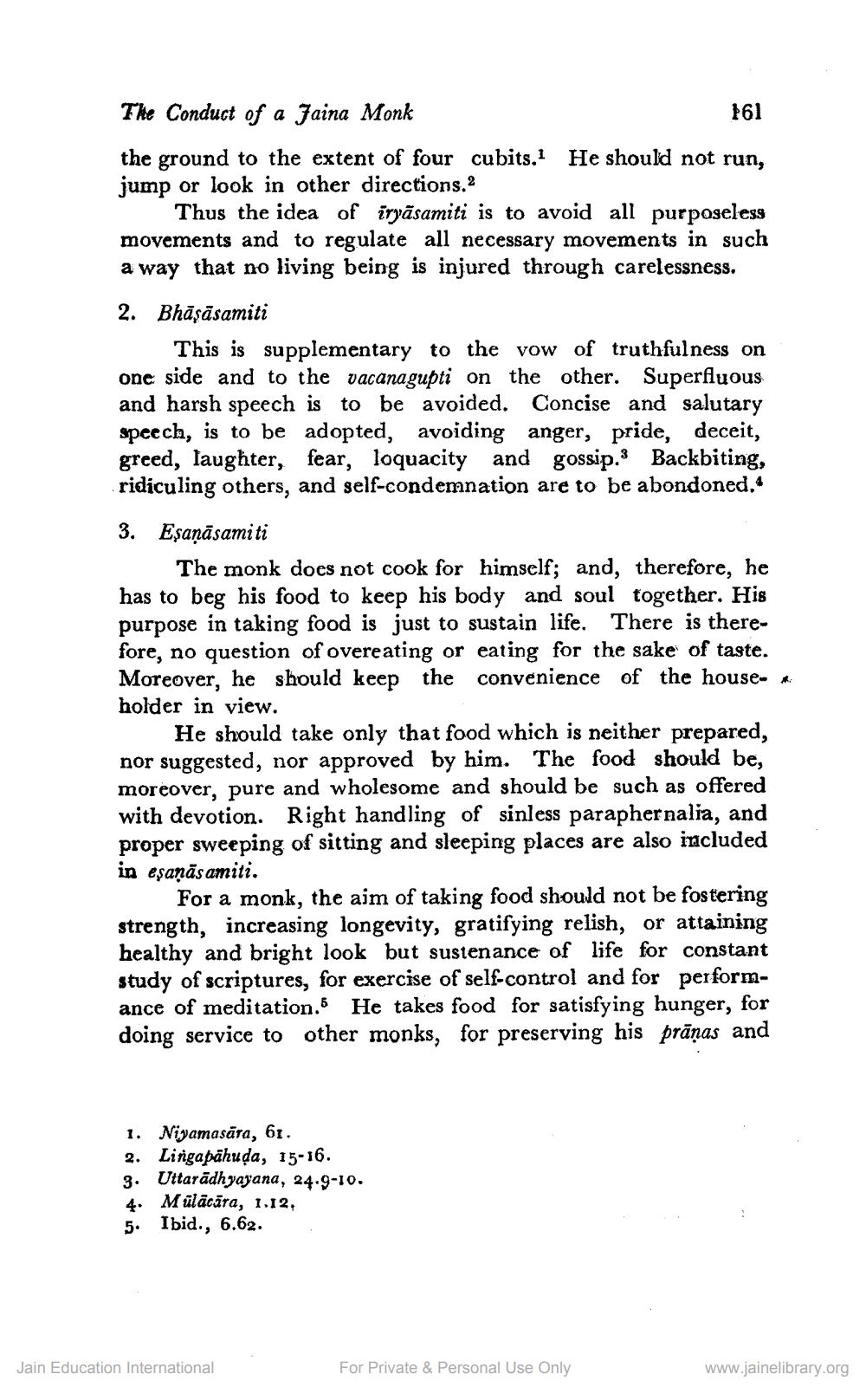________________
The Conduct of a Jaina Monk
161
the ground to the extent of four cubits. He should not run, jump or look in other directions.2
Thus the idea of iryasamiti is to avoid all purposeless movements and to regulate all necessary movements in such a way that no living being is injured through carelessness.
2. Bhāṣāsamiti
This is supplementary to the vow of truthfulness on one side and to the vacanagupti on the other. Superfluous and harsh speech is to be avoided. Concise and salutary speech, is to be adopted, avoiding anger, pride, deceit, greed, laughter, fear, loquacity and gossip.3 Backbiting, ridiculing others, and self-condemnation are to be abondoned."
3. Eṣaṇāsamiti
The monk does not cook for himself; and, therefore, he has to beg his food to keep his body and soul together. His purpose in taking food is just to sustain life. There is therefore, no question of overeating or eating for the sake of taste. Moreover, he should keep the convenience of the house- * holder in view.
He should take only that food which is neither prepared, nor suggested, nor approved by him. The food should be, moreover, pure and wholesome and should be such as offered with devotion. Right handling of sinless paraphernalia, and proper sweeping of sitting and sleeping places are also included in eşaņāsamiti.
For a monk, the aim of taking food should not be fostering strength, increasing longevity, gratifying relish, or attaining healthy and bright look but sustenance of life for constant study of scriptures, for exercise of self-control and for performance of meditation. He takes food for satisfying hunger, for doing service to other monks, for preserving his pranas and
1. Niyamasara, 61.
2. Lingapahuḍa, 15-16.
3. Uttaradhyayana, 24.9-10. 4. Mülācāra, 1.12, 5. Ibid., 6.62.
Jain Education International
For Private & Personal Use Only
www.jainelibrary.org




